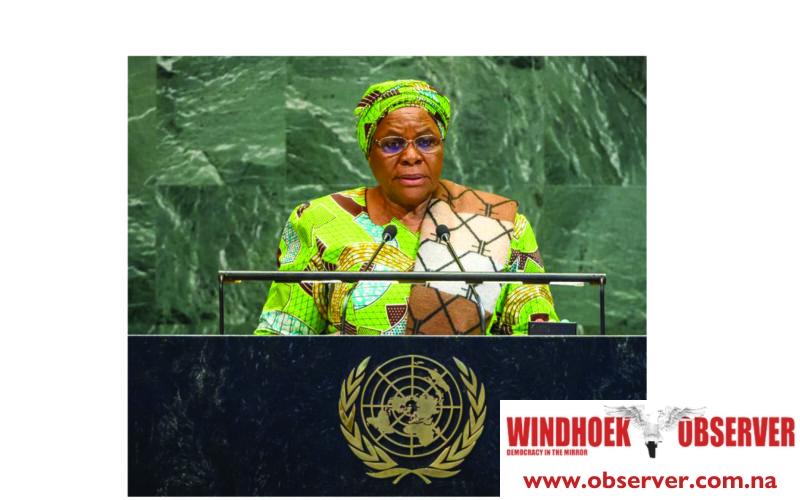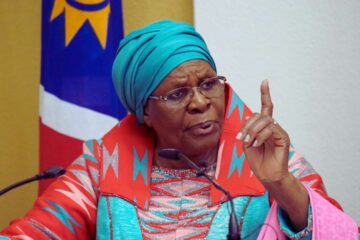Justicia Shipena
President Netumbo Nandi-Ndaitwah has said Namibia’s biggest challenge in advancing gender equality is the economic exclusion of women, particularly those in rural areas.
“There are areas where there is room for improvement. In our national context, this is mainly in the area of the economic inclusion of women, especially rural women who still remain on the margins of economic activity,” Nandi-Ndaitwah said at the High-Level Meeting on the 30th anniversary of the Fourth World Conference on Women in New York this week.
She said economic challenges continue to limit access to credit, land, and markets, with 70% of informal traders being female, especially young women.
Namibia’s National Gender Equality and Equity Policy 2025-2035 aims to close these gaps by promoting equal access to resources, capacity building, and support for women-owned micro-enterprises.
Nandi-Ndaitwah added that agriculture, a key informal activity, is supported by the Agribank of Namibia to assist women and youth who want to venture into farming.
She also pointed to Namibia’s progress in political and legal reforms, noting the country’s ranking of eighth globally and first in Africa on the 2025 World Economic Forum Global Gender Gap Report.
“As President, I am proud to highlight our historic milestone. It is encouraging to share that women hold 57% of cabinet positions and 38.5% in the National Assembly, including key ministries like Finance, Health, Education and International Relations and Trade,” she said.
Nandi-Ndaitwah said Namibia’s progress stems from strong political will since independence, through adopting and domesticating international commitments such as the Beijing Declaration and Platform for Action.
Nandi-Ndaitwah served as Rapporteur General at the 1995 Beijing Conference.
“On this 30th Anniversary of the Beijing Conference, a conference I served as the Rapporteur General, Namibia recommits to accelerating the Beijing Declaration by tackling gender-based violence, harmful norms, partnerships, and gender-responsive budgeting as our contribution to the full realisation of sustainable development goal (SDG 5), among others,” she said.
SDG 5 is the United Nations goal on gender equality and the empowerment of all women and girls, aimed at achieving equal rights, opportunities, and full participation in political and economic life.
The Beijing Declaration, adopted on 15 September 1995 at the Fourth World Conference on Women, set principles for the equality of men and women.
According to the African Union, many African states have since made significant progress in women’s political participation.
Rwanda leads globally with women holding over 60% of parliamentary seats, while countries such as South Africa, Namibia, and Senegal have also advanced gender-balanced representation.
At the same meeting, UN secretary general António Guterres warned that global progress on gender equality remains slow, uneven, and under threat. He called the Beijing Declaration “the most ambitious global political commitment to women’s rights ever achieved” but noted that no country has yet reached full equality.
“Sustainable Development Goal Five – gender equality – is lagging far behind. Hard-won gains are now under attack. Meanwhile, conflicts and climate disasters are multiplying. The human rights of women and girls are casualties of both,” he said.
He added that cultural and structural barriers remain, saying “technology is spreading hate like a virus. And a wave of misogyny is rolling across the world.”
Guterres urged leaders to stand with women’s rights movements.
“In every region, every country, every community, women and girls are fighting for their rights. Demanding freedoms. Combatting abusive practices. Rallying for legal protections. And organising – to take their rightful place at the table in decision-making and peace processes. The United Nations stands with them. All leaders should do the same.”
He also warned of new challenges such as artificial intelligence. “We must confront violence and online hate and ensure that technology serves equality, not exclusion. That includes investing in women and girls’ education in science, technology, engineering and mathematics,” he said.




